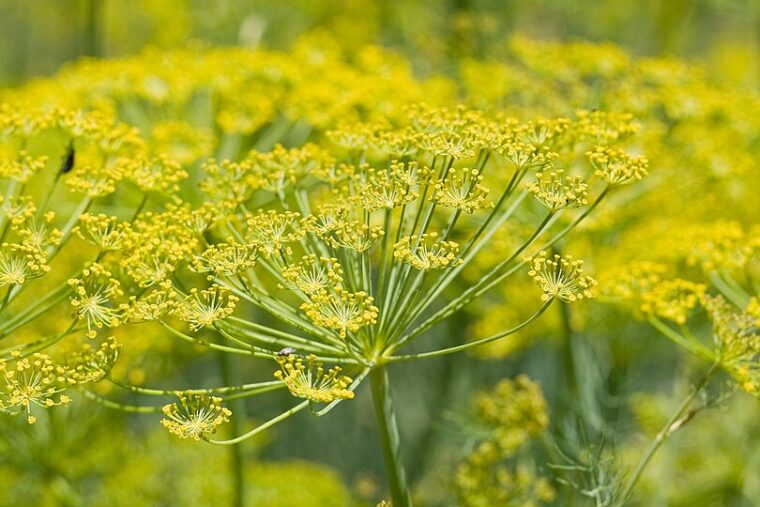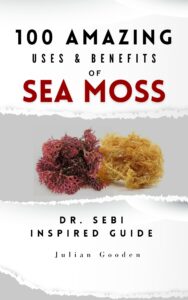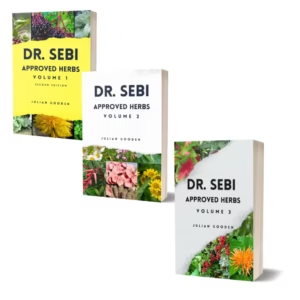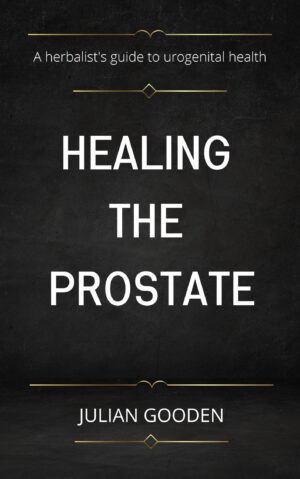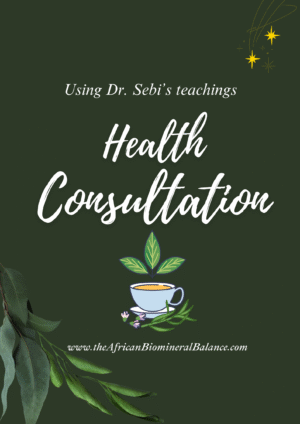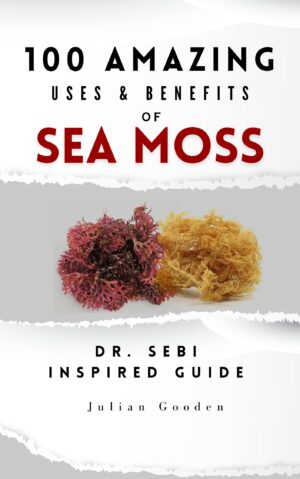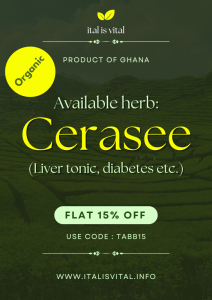Fennel seeds are listed on Dr. Sebi’s nutritional guide as a recommendation for tea. As such I wanted to do a profile of this herb as you will see below:
Botanical Overview:
- Family: Apiaceae (carrot family)
- Common Names: Fennel, sweet fennel, Florence fennel, finocchio, saunf (Sanskrit), marathon (Greek)
- Description: Fennel is a hardy, perennial herb native to the Mediterranean, now widely naturalized in regions like northern Europe, North America, Asia, and Australia. It features hollow, erect, glaucous green stems growing up to 2.1 meters (7 feet) tall, with finely dissected, feathery leaves and yellow flowers arranged in umbels. The plant produces oblong, ribbed seeds with a licorice-like flavor due to the compound anethole.
Parts Used:
- Bulb: Crisp, celery-like, used as a vegetable, raw or cooked.
- Leaves: Feathery, used as garnish or in salads.
- Seeds: Aromatic, used as a spice, in teas, or as a breath freshener.
- Stems: Eaten like celery or used in culinary preparations.
- Essential Oil: Extracted from seeds for medicinal and culinary uses.
Nutritional Profile:
Raw Fennel Bulb (per 100g): Approximately 90% water. Rich in potassium, calcium, phosphorus, and magnesium.
Dried Fennel Seeds (per 100g): High in calcium, iron, magnesium, manganese, and other nutrients.
Phytochemicals: Contains flavonoids and phenolic compounds with antioxidant and anti-inflammatory properties.
Culinary Uses:
- Bulb: Eaten raw in salads, roasted, braised and added in soups and stews.
- Leaves: Used as a garnish, in salads, or to flavor sauces.
- Seeds: A spice in baked goods, pickles, and beverages like absinthe and Scandinavian brännvin. Common in Indian mukhwas (breath freshener) and herbal teas.
Cultural Significance:
Integral to Mediterranean, Indian, Middle Eastern, and Chinese cuisines. Used in Ayurveda and traditional Chinese medicine for its warming and digestive properties.
Medicinal Uses and Health Benefits:
Fennel has been used for centuries in traditional medicine for over 40 ailments, particularly in digestive, respiratory, reproductive, and endocrine systems.
Digestive Health: Acts as a carminative, relieving bloating, gas, cramps, and constipation. Fennel tea or seeds are traditional post-meal remedies in many cultures. Studies show fennel reduces colon transit time (e.g., 15.7 hours vs. 42.3 hours in placebo for constipation).
Respiratory Support: Expectorant and bronchodilator, used for coughs, bronchitis, and mucus clearance.
Reproductive Health: Contains phytoestrogens (e.g., anethole), used as a galactagogue to promote lactation and to ease menstrual cramps and menopausal symptoms. May regulate blood sugar and relieve period pain.
Cardiovascular Benefits: High in potassium and dietary nitrates, which act as vasodilators to lower blood pressure and support heart health.
Antioxidant and Anti-inflammatory: Contains rosmarinic, quercetin, and chlorogenic compounds, reducing free radical damage and inflammation linked to chronic diseases like cancer and heart disease.
Antimicrobial Properties: Effective against bacteria (e.g., Staphylococcus aureus, Escherichia coli), fungi (Candida albicans), and some other microbes.
Eye Health: Traditionally used for vision support and to reduce eye inflammation; to prevent cataracts.
Other Uses: Appetite suppressant, diuretic, and potential anxiolytic effects via GABA-ergic and estrogenic pathways. Used historically as an antidote for poisons and insect bites.
Herbal Formulas Involving Fennel:
Fennel is often combined with other herbs to enhance its therapeutic effects. Below are common herbal formulas:
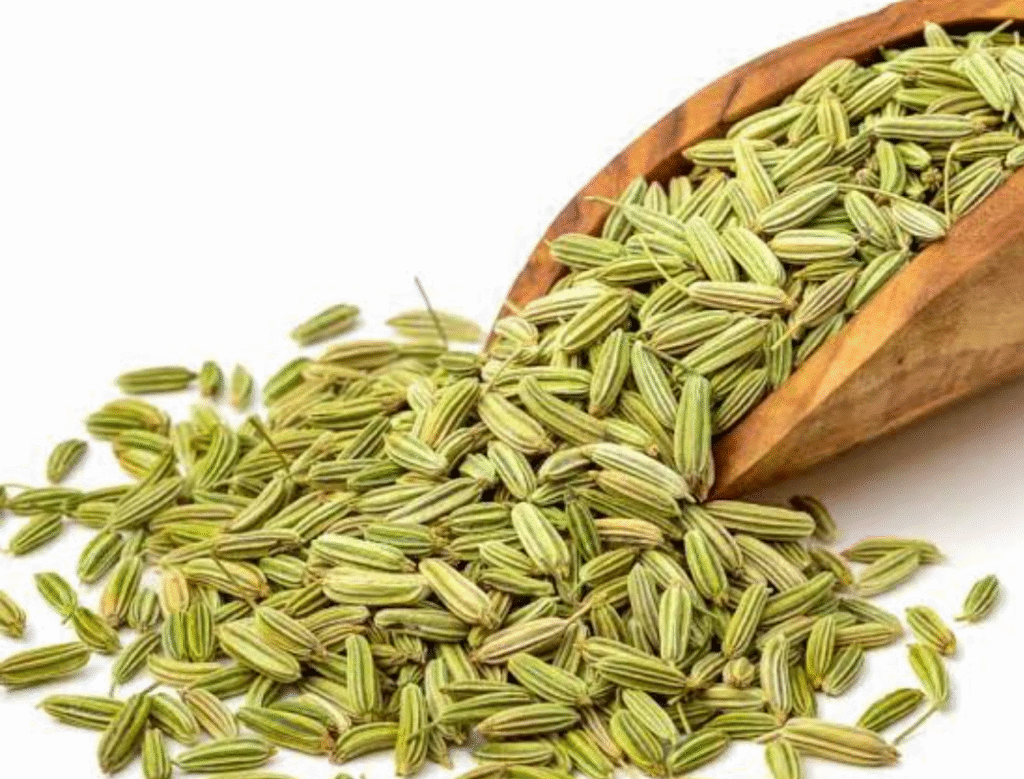
Digestive Tea:
- Ingredients: Fennel seeds, ginger root.
- Preparation: Boil 1 tsp each of fennel, and 1 tsp ginger root in 16 oz water, steep for 20 minutes, strain, and sip warm throughout the day.
- Use: Supports digestion, reduces bloating, and detoxifies.
Colic Relief for Infants (e.g., ColiMil):
- Ingredients: Fennel, lemon balm, German chamomile.
- Use: Reduces crying time and colic severity in breastfed infants. Administered as a tea or standardized extract for up to one week.
Laxative Blend:
- Ingredients: Fennel, anise, elderberry, senna.
- Use: Reduces constipation by improving colon transit time; fennel minimizes cramping caused by senna.
Menopause Support:
- Ingredients: Fennel, chamomile, saffron.
- Use: Alleviates menopausal symptoms like hot flashes and vaginal atrophy. A randomized trial showed efficacy in postmenopausal women.
Cough Syrup:
- Ingredients: Fennel, demulcent herbs (e.g., sea moss).
- Preparation: Decoct 1 oz herbs in 16 oz water over low heat until simmering.
- Use: Soothes scratchy throats and reduces coughing.
Ayurvedic Polyherbal Formulations:
- Fennel is included in Ayurvedic pharmacopeia for digestive, respiratory, and reproductive disorders.
Safety and Precautions:
- Generally Safe: Fennel is recognized as safe (GRAS) by the FDA in food amounts.
- Side Effects: Rare but may include nausea, vomiting, stomach cramps, photosensitivity, or allergic reactions (especially in those allergic to mugwort).
- Pregnancy/Breastfeeding: Possibly unsafe; linked to preterm birth and nervous system damage in breastfed infants via herbal teas. Avoid high doses.
- Drug Interactions: May interact with ciprofloxacin (reducing absorption) and tamoxifen (due to beta-sitosterol). Consult a healthcare provider.
- Toxicity Concerns: Estragole in fennel oil may be carcinogenic in animals; anethole at high doses (695 mg/kg) caused mild liver damage in rats. Use in moderation.
- Contraindications: May slow blood clotting in bleeding disorders.
Cultivation and Ecological Notes:
- Habitat: Thrives in dry, limestone soils near coasts or riverbanks. Naturalized in many regions but considered invasive in areas like Australia and the U.S., where it outcompetes native plants.
- Cultivation: Grown for seeds (yield ~1200 kg/ha) and bulbs (Florence fennel). Requires full sun and well-drained soil.
Historical and Cultural Context:
- Folklore: Used in ancient Rome for sight and as a snakebite antidote; hung over doors in medieval Europe to ward off evil spirits. Symbolized flattery in Shakespeare’s Hamlet.
- Traditional Medicine: Valued in Ayurveda, Chinese, and Unani systems for warming properties, digestion, and lactation support. One of the nine herbs in the Anglo-Saxon Nine Herbs Charm.Fennel is a versatile herb with a rich history and wide-ranging applications in culinary and medicinal contexts. Its inclusion in herbal formulas enhances its efficacy for digestion, respiratory health, and women’s health, but caution is advised for specific populations due to potential side effects. Always consult a healthcare provider before using fennel as a supplement or in high doses.
References:
- Wikipedia – Fennel: Provides comprehensive details on fennel’s botanical characteristics, nutritional profile, culinary uses, and traditional medicinal applications.
- WebMD – Fennel: Offers insights into fennel’s medicinal uses, safety concerns, side effects, and potential drug interactions.
- Healthline – 10 Science-Based Benefits of Fennel and Fennel Seeds: Discusses evidence-based health benefits, including digestive, cardiovascular, and antimicrobial properties.
- Wise Woman Herbals – Fennel: Details fennel’s role in herbal medicine, including its use in digestive teas and traditional remedies.
- RxList – Fennel: Provides information on fennel’s medicinal uses, particularly for digestive and respiratory conditions, and precautions.
- Gardening Know How – Fennel: Covers cultivation practices, ecological impact, and fennel’s status as an invasive species in some regions.
- Medical News Today – What Are the Benefits of Fennel?: Highlights nutritional content, health benefits, and culinary uses of fennel bulb and seeds.
- Frontier Co-op – Fennel Seed: Discusses fennel seed’s culinary and medicinal applications, including its role in herbal teas and spice blends.
- Ayurveda Sources: General knowledge from Ayurvedic texts (not directly cited but referenced for fennel’s use in polyherbal formulations and its warming properties).
- Example: Fennel’s inclusion in digestive teas like cumin-coriander-fennel blend.
- Scientific Studies (as referenced in secondary sources like Healthline and WebMD):
- Studies on fennel’s efficacy for colic (e.g., ColiMil with fennel, chamomile, and lemon balm).
- Research on fennel’s role in reducing menopausal symptoms and constipation (e.g., colon transit time studies).
- Investigations into fennel’s phytochemicals (anethole, estragole) and their antioxidant, antimicrobial, and anti-inflammatory effects.


